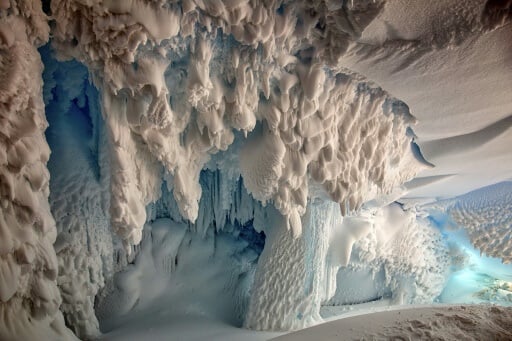- Get link
- X
- Other Apps

Under the glaciers of Antarctica, the secret world of animals and plants, including unknown species, can hide, scientists say. Caves carved by the steam of active volcanoes are very light and can be heated up to 25 degrees Celsius, creating ideal conditions for the prosperity of ecosystems of flora and fauna deep under the frozen surface.
A study conducted by the Australian National University near Mount Erebus, an active volcano on Ross Island in Antarctica, revealed extensive cave systems. Lead researcher Tseridven Fraser notes that the analysis of soil samples showed intriguing traces of DNA from algae, mosses and small animals.
Although most of the DNA was similar to that found in mosses, algae and invertebrates throughout Antarctica, not all sequences were fully identified.
"The results of this study offer us an exciting possibility of the existence of life under Antarctic ice - there may be new species of animals and plants," says the scientist. "The next step will be to go and see if we can find the colonies living under the ice of Antarctica."

Despite the frosty temperature on the continent, Fraser says that the heat emanating from the volcanoes can make the caves quite hospitable, warm enough to be "walking in a T-shirt", with light filtration at a depth where the ice from above is the thinnest. In Antarctica there are many other volcanoes, so the subglacial cave systems should be very common.
"We do not yet know how many cave systems exist for Antarctic volcanoes and how much they can be interconnected. They are rather difficult to find, it is difficult to get into them and to explore too. "
The study, published in the international journal Polar Biology, notes that there should be at least 15 active or recently active volcanoes in Antarctica, and this is not limited to them. At the same time, scientists know very little about life in the subglacial cave systems, which can be very diverse and complex.
"Our results underscore the importance of studying these cave systems in more detail, in spite of the field problems associated with this exercise - to confirm the presence of a living macrobiota," scientists say.
The article is based on materials .
- Get link
- X
- Other Apps
Comments
Post a Comment